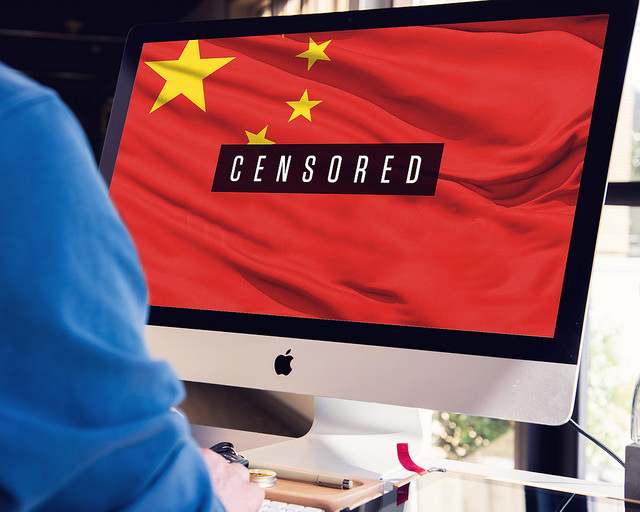 POLICY
POLICY
 POLICY
POLICY
 POLICY
POLICY
Hundreds of Google LLC employees are doubling down on their efforts to discourage the company from developing a censored search engine for the Chinese market.
On Tuesday, more than 290 Google staff signed an open letter stating in no uncertain terms that the search engine, codenamed “Project Dragonfly,” was not in line with their ethics, or alleged company ethics. This follows a letter signed in August by about 1,400 employees that also questioned the morality of creating a search engine for a regime that openly represses free speech.
“Our opposition to Dragonfly is not about China: we object to technologies that aid the powerful in oppressing the vulnerable, wherever they may be,” said the letter. “Dragonfly in China would establish a dangerous precedent at a volatile political moment, one that would make it harder for Google to deny other countries similar concessions.”
China has ratcheted up efforts in the last few years to monitor its own citizens, with heightened video surveillance and also giving its people a “citizen score” based on what the government has unearthed regarding their behavior.
This system of social credit is still in the pilot stage, but the government hopes it will be fully operational come 2020. The Chinese government has said that it hopes the system will “stimulate the interaction, exchange, coordination and sharing of credit information, complete combined social credit reward and punishment mechanisms, construct a social credit environment of sincerity, self-discipline, trust-keeping and mutual trust.”
Such surveillance and human bookkeeping is the main reason why many Google employees are not comfortable with Dragonfly, which they feel will become part of that oppressive system. “Providing the Chinese government with ready access to user data, as required by Chinese law, would make Google complicit in oppression and human rights abuses,” said the signed letter.
Those employees join Amnesty International, which in a post Tuesday called China’s surveillance program “dystopian.” The organization also said that if Google continues with its project, it will set a dangerous precedent for tech companies to get on side with other dictatorial governments.
“Many of Google’s own staff have spoken out against these plans, unwilling to play a role in the Chinese government’s manipulation of information and persecution of dissidents,” said Amnesty. “Their courageous and principled stance puts Google’s leadership to shame.”
Amnesty went on to say that leaked documents reveal that Dragonfly would filter “sensitive queries,” even if those queries just contained the words “human rights” or “student protests” or matters of history the government might not want its citizens to be reading.
“If Google is happy to capitulate to the Chinese government’s draconian rules on censorship, what’s to stop it cooperating with other repressive governments who control the flow of information and keep tabs on their citizens?” Amnesty said.
This isn’t the first time Google has been challenged on its ethics of late, which some believe belies its pledge to do good in the world. In November, the company saw global walkouts over the mistreatment of female employees, while thousands of employees earlier this year mounted a protest over the company’s offering of its artificial intelligence technology to helped the Pentagon with its war efforts.
Amnesty has said that it will help coordinate protests outside Google offices in the U.S., the U.K., Australia, Canada, Germany, Hong Kong, the Netherlands and Spain.
At the behest of governments around the world, Google has delisted certain content in the past, and this has often been met with criticism for being heavy-handed policing. In the case of China, though, and Project Dragonfly, Google is accused of possibly becoming complicit in a censorship and surveillance initiative that heralds a kind of “Big Brother” state of affairs that people have long feared.
Google Chief Executive Officer Sundar Pichai has said getting back into China has been in the cards for some time, and at times he has played down his company’s role in aiding and abetting omniscient censorship.
After the news broke about Dragonfly, Pichai said Google “wasn’t close” to getting the project off the ground, but later he said Google could have “a positive impact when we engage around the world and I don’t see any reason why that would be different in China.”
In terms of the bottom line, Google probably cannot afford to ignore China, but in terms of company image this could be the straw that breaks the camel’s back, at least in terms of the company making good on its motto, “Don’t be evil.” That motto has since changed to “Do the right thing,” a perhaps difficult sentiment for a large corporation to meet.
THANK YOU